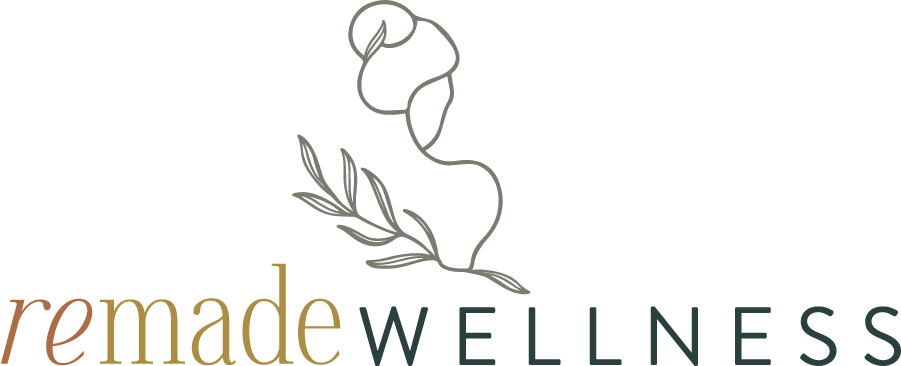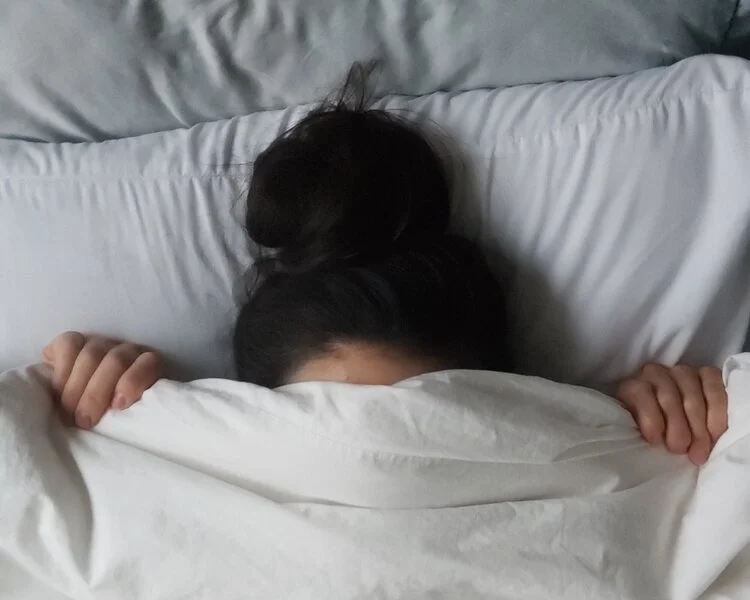Breathe. Create Space. Sleep.
Daniela Spear, ACE Health Coach and Autoimmune Specialist
Cortisol, your body’s built-in alarm system, it regulates your sleep cycle, manages blood pressure, controls macronutrient stores, and reduces inflammation. Seems helpful, right? Have you ever heard the saying, “ Too much of a good thing”?
Our bodies respond to stress by releasing cortisol, otherwise known as the “fight or flight” response. Historically essential for the survival of humans, it has been known to produce superhuman strength in the face of adversity. While there aren’t any saber tooth tigers roaming around our backyards, our bodies respond much the same way to modern day stressors such as sitting in traffic, meeting a deadline, or a changing season.
When we experience stress, our sympathetic nervous system takes over, releases cortisol and addresses the stressor. Then our parasympathetic nervous system, responsible for rest, calms us down. Serotonin, the feel good hormone, kicks in to help us feel more at ease and happier. Human Growth Hormone (HGH) contributes to the vitality and resiliency of our cells and organs.
When cortisol levels are too high in the body, serotonin and HGH are not able to do their jobs and our body never has a chance to calm down. The sympathetic nervous system just stays on, overproducing cortisol. The excess cortisol sends your immune system into overdrive and thus ensue flare-ups.
Let’s discuss some ways to reduce cortisol and increase serotonin and HGH, thereby decreasing the likelihood of an autoimmune flare-up.
1. Breathe. Did you know that you breathe well over 23,000 times each day. That’s a lot of times. Because we repeat that action so many times per day, poor breathing habits will result in excessive energy expenditure. Breathing is attached to every other system in your body, especially your nervous system. Controlled breathing increases your body's ability to handle and process mental, physical, and emotional stress, making you a more resilient autoimmune thriver.
For moments of stress relief throughout your day practice this breathing tempo a couple of times through your nose to a count of 6-4-10. Inhale from your belly for 6 seconds, hold your breath for 4 seconds, exhale for 10 seconds. Breathing in and out through your nose increases oxygen absorption for your cells and naturally detoxes the air you breathe of bacteria, another small yet essential component to preventing autoimmune flare ups.
Because breathing is so connected to your nervous system, a structured pattern of breathing creates a more rhythmic pattern in your body. This can actually influence your immune system to become more rhythmic and less hyperactive. And this is what we want; rhythm versus chaos in the immune system.
2. Create Space. Once summer ends, people tend to overbook their schedules with weeknight activities and weekend commitments. And with the holiday season just around the corner, now is the time to begin creating intentional space in your schedule.
Creating space in your schedule means being intentional NOT to schedule something every night of the week. Reserve a weekday evening to reset your body and mind. Keep that appointment each week. A hyperactive mind breeds a hyperactive immune system.
I keep my Tuesday evenings open. It is tempting to schedule a dinner with a friend or pick a project to work on that has been on the back burner for too long. Our minds are wired to “work” during the week, but I have never regretted keeping my appointment to myself. Having an evening without commitment allows me to turn off my mind for a bit and not feel like I am “on-the-go” every minute of everyday. It is so nice to wrap my mind around the open space and just breathe.
My husband and I also have a commitment to honor Sunday as a day of rest. We do our best to not schedule social commitments on Sundays so that we can have time to sleep in, spend time together, and prepare for the week ahead. God calls us to honor a day of rest (it can be any day of the week) because He knows we need it. Our bodies are incredibly resilient, but they need rest in order to get stronger.
"Come to me, all you who are weary and burdened, and I will give you rest.”
- Matthew 11:28
3. Sleep. Now let’s talk about sleep. Sleep is the most essential recovery method of them all. Sleep is the time your body uses to repair and heal itself from daily stressors. Poor sleep hygiene will result in elevated cortisol levels, and your body will constantly be in repair mode without actually healing. Remember that serotonin and HGH won’t be able to do their job if cortisol is too high.
Issues such as trouble falling —or staying—asleep all stem from a bigger issue. It could be that your bedtime routine needs some updating or you have a bigger stressor that you need to address.
Good sleep hygiene habits include a regular bedtime each day, a cool and dark room, and a space designated for sleep only, meaning: don’t bring your work into your bedroom. Turning off electronics at least an hour before bed helps your circadian rhythm stay on track. But I have to admit, I myself am still working on this one.
Other bedtime hacks include drinking a lavender or chamomile tea in the evening to help wind down.
You could also try turning down bright lights in your house and using candles or lamps as lighting. If aromas are more of your thing, try adding a drop of lavender to each corner of your pillowcase or diffuse it along with peppermint if you own a diffuser.
If you are a thinker at bedtime, (guilty!) keep a journal beside your bed. This is one of my favorite bedtime hacks. I allow myself five minutes to write as much as I can of what is on my mind. It can be thoughts from your day, moments of gratitude, or that neverending to-do list in your brain.
Lastly, and probably one of the most effective strategies for me is to practice meditation right before bed. I really enjoy using the HeadSpace App* or Calm App* guided meditations or the sleepcasts to fall asleep. If you’ve never tried meditation, do not worry, it's a learned practice. The more you do it, the better you get!
*not a paid sponsorship, just a big supporter!
I am a firm believer that our bodies follow our minds. Rest allows our minds to be at ease, which means our bodies are at ease. If you try any of these strategies or have your own strategies for dealing with the stress of a changing season, let me know and tag @healing_in_motion in your posts.
The fall season can also bring about Seasonal Affective Disorder (SAD). SAD is a type of depression that comes and goes with the changing of seasons. Next week I will be sharing my first experience with SAD, ways to deal with it, and why autoimmune patients need to be aware of it.



